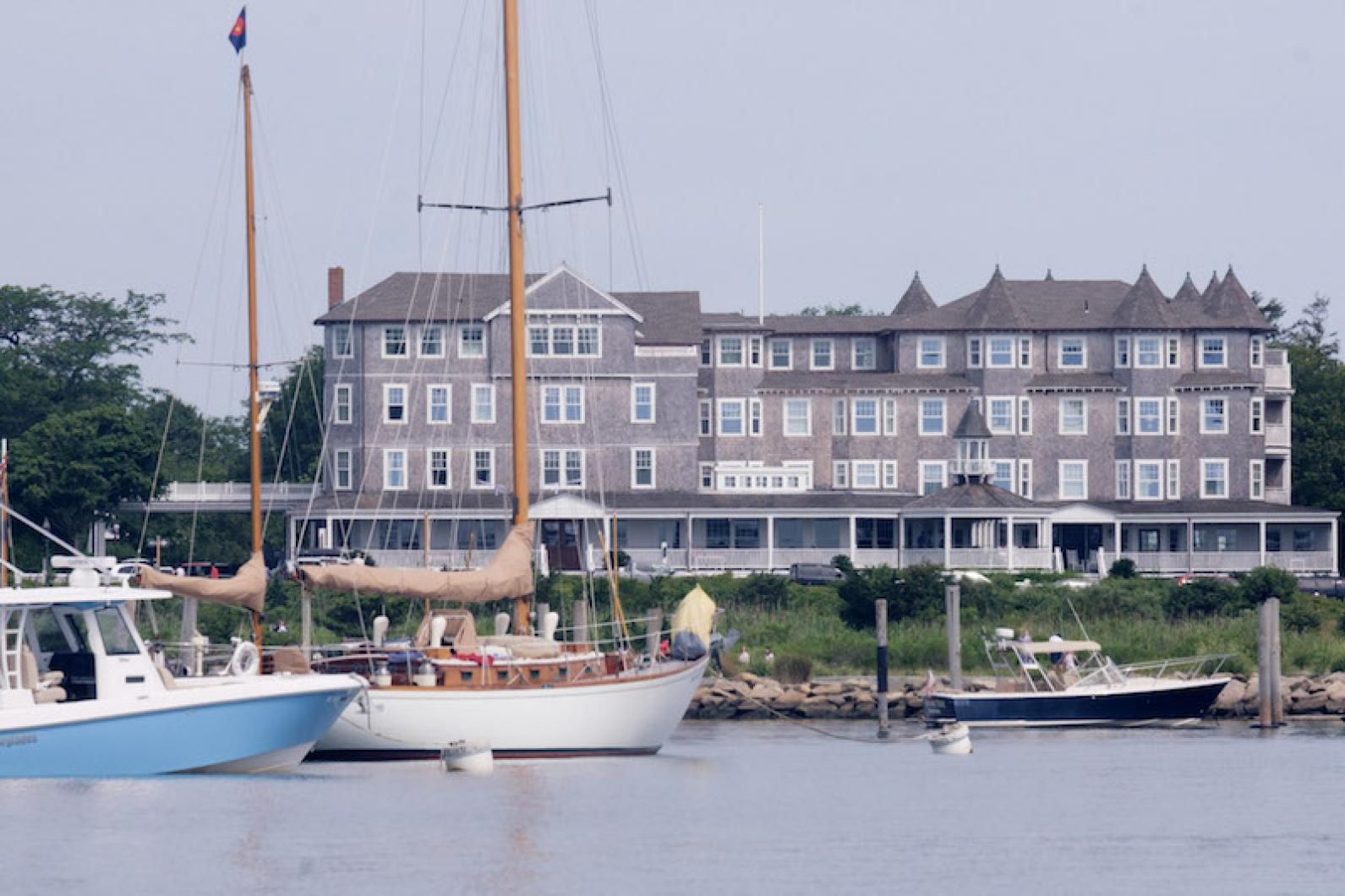The Harbor View Hotel has sued the Martha’s Vineyard Commission, challenging the conditions attached to the recent approval of an expansion to the hotel’s spa, calling them unduly onerous, irrelevant and even illegal.
The commission approved the spa expansion in a 9-5 vote on July 22, with more than a dozen conditions that included barring the hotel from accepting cash transactions at the spa, the submission of a plan for the hotel’s pool bar and a $500,000 affordable housing contribution, among other things.
In a 26-page appeal filed on Tuesday, Sept. 14 in Dukes County superior court, lawyers for the historic Edgartown hotel expressed frustration with the commission’s decision, requesting the removal or modification of 14 conditions. The complaint was signed by attorneys Kevin O’Flaherty and Mariana Korsunsky. Mr. O’Flaherty is Boston lawyer who has represented the Harbor View in various legal skirmishes since 2019.
“The conditions imposed by the MVC grossly exceed its authority and violate its own enabling act,” the complaint says in part.
The lawsuit represents the latest move in an ongoing legal saga that has pitted the hotel and local regulatory bodies against a group of neighbors in the Starbuck’s Neck neighborhood amid incremental changes on the hotel property, including the controversial pool bar.
The expansion of the hotel’s Bradley Cottage into a 4,000-square-foot spa came before the commission late last year as a minor modification to the hotel’s previously approved, $55 million redevelopment plan, which has played out in various stages since 2008.
The spa proposal stirred broader concerns from neighbors, who used the commission forum to vent frustration about what they described as continued, piecemeal developments over the past three years that have affected the character of the residential area.
After multiple public hearings and adaptations, the commission approved the project with strict conditions limiting the hotel’s commercial development.
Other conditions limit the hotel’s use of a property it ownes at 119 Water street, and require the hotel to submit a five-year master plan for the property. The MVC placed strict timelines on construction, and required the establishment of a long-term neighborhood preservation committee that includes abutters within a 600-foot radius of the hotel.
In the appeal, hotel lawyers argue that the conditions imposed on the spa and hotel could render it financially untenable and are peripheral to the proposed project. They state that the hotel made considerable concessions during the public hearing process that the commission refused. Instead, the complaint alleges, the commission kowtowed to neighbors by instituting more onerous requirements.
The complaint also argues that one condition, requiring spa payments to be charged to hotel rooms, is illegal under state law.
“The hotel was pressured by the MVC to withdraw its request that the spa be available to the public,” the appeal alleges. “The MVC ignored the hotel’s concession and imposed a more onerous condition, limiting the spa to hotel guests only and prohibiting, in violation of Massachusetts law, guests from paying in cash for spa services.”
The complaint also claims that concerns about noise, cleanliness, lighting, traffic and property values regarding other developments to the hotel, including the pool bar, were unrelated to the spa development, and should not have been included in conditions.
“With the exception of traffic, these alleged impacts were completely untethered to any possible from the minor and relatively innocuous modifications requested in the application,” the appeal says.
The appeal was filed within the 20-day statutory limit for legal challenges to commission decisions. The commission has not yet responded to the complaint.







Comments (26)
Comments
Comment policy »